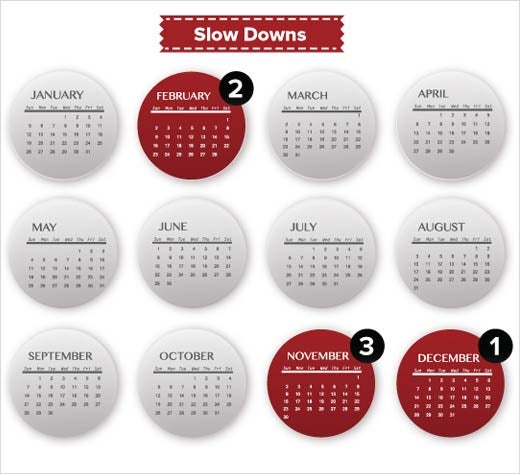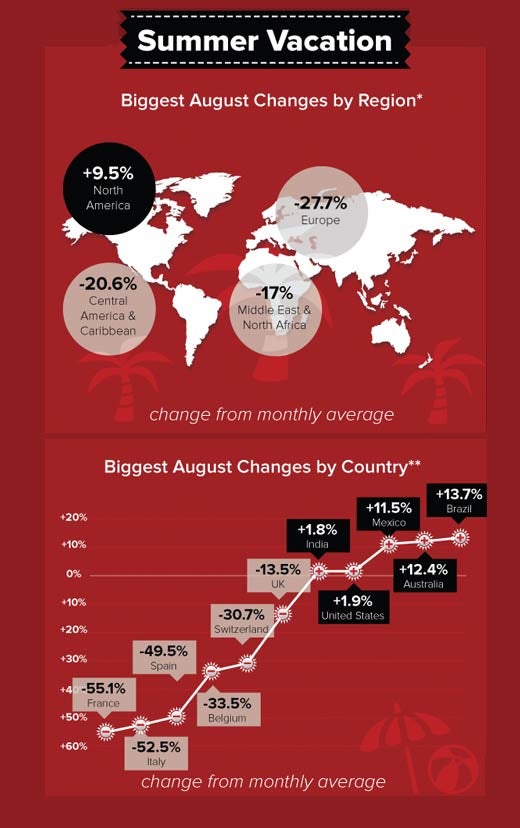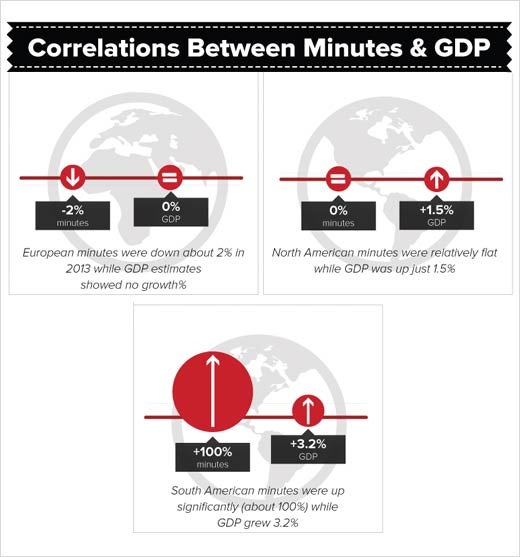The conference call is a common business practice across the globe. But can conferencing usage help us learn about cultural trends? InterCall, a leading international conferencing and collaboration provider, tracked more than 20 billion conferencing minutes across 197 countries in 2013 to unveil some interesting international work habits.
Click through for findings from a survey on conference call usage during 2013, provided by InterCall.
When do we conference?
Every industry has slow and busy months, but as a whole, international conferencing minutes have peaks and valleys according to common cycles. The top two months for conferencing correspond with the start of a new quarter, and the slowest month matches up with religious holidays.
Busiest months
October takes the top spot as a popular time to start planning and budgeting discussions for the next year. April and May both mark the beginning of new quarters, while April is also a common time for tax and earnings calls.
Slow downs
December holidays make it the slowest conferencing month of the year. February is a short month by default, leaving less time for calls.
Who takes the biggest breaks?
Conferencing slow downs are often linked to major holidays. But while some international regions are quick to ditch the office during these months, others work right through them.
Holidays
Central America and the Caribbean show the biggest regional slow down – dropping 35 percent from the monthly average. On a country-by-country basis, Switzerland leads the pack with a 29.5 percent decrease from the monthly average, followed closely by Belgium, Singapore and Australia.
Vacation
While August is a popular vacation month, North America actually bucked that trend with a 9.5 percent increase in usage over monthly averages. Conversely, European countries led the slow down with a 27.7 percent decrease in usage. Countries leading the slow down included France (55.1 percent), Italy (52.5 percent), Spain (49.5 percent) and Belgium (33.5 percent).
Are conference minutes an economic indicator?
While there are certainly many factors that go into a country’s and region’s economic growth, business communication activity increases and decreases with a cyclical economy. Looking at a few regions’ conferencing minutes, we can see a correlation between their time on conference calls and 2013 GDP estimates according to the International Monetary Fund (IMF).


